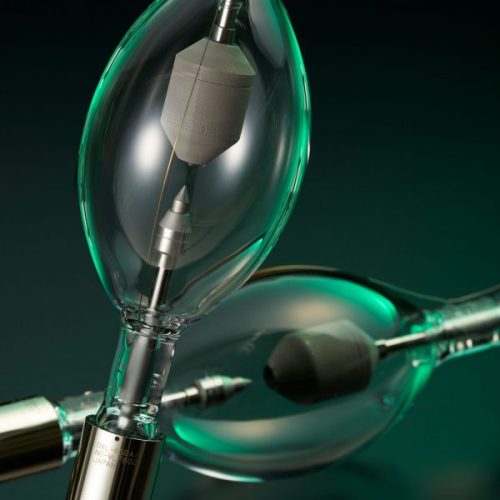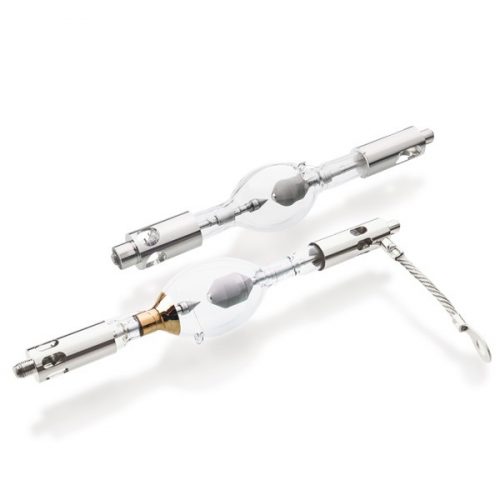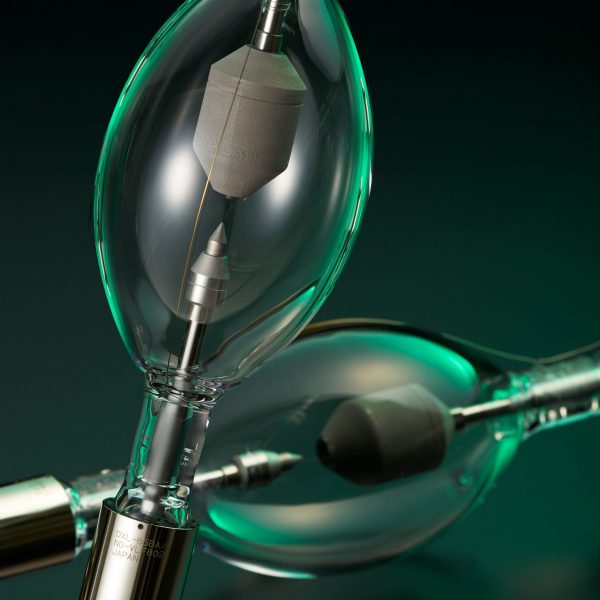Digital Cinema Projector (DCP) Lamps
Controlling a colossal share of the global market in digital cinema projector (DCP) lamps, the likelihood is that you have enjoyed the premium quality of Ushio’s xenon short arc technology without even realising it. Taking on such a huge piece of a market like this also brings a huge amount of responsibility.
For over half a century, Ushio has worked tirelessly alongside the biggest technical names in the industry to ensure the studio’s visions are displayed flawlessly on screen. Ushio Europe B.V. further cemented its influential position within the industry by acquiring Christie, an Academy Award-winning projector manufacturer, in 1992. Christie, now known as Christie Digital Systems, Inc., later emerged as a major player in the DCP market, taking home a second technical achievement Oscar in 1998.
As the digital revolution began to take hold, the Ushio Group took advantage of its own long-standing analogue cinema and large venue expertise by applying it to the new digital age. Click one of the icons below to have a closer look at our DXL, DXL-L, and DXL-LU series lamps, or scroll on down to learn about Ushio’s role in the world of digital cinema projection.
Today, Ushio offers a comprehensive portfolio of digital cinema lamps for all major cinema Xenon based projector brands like Barco, Cinemeccanica, Christie, Kinoton, Sony, and NEC.
Partnering with cinematic heavyweights to deliver the highest quality
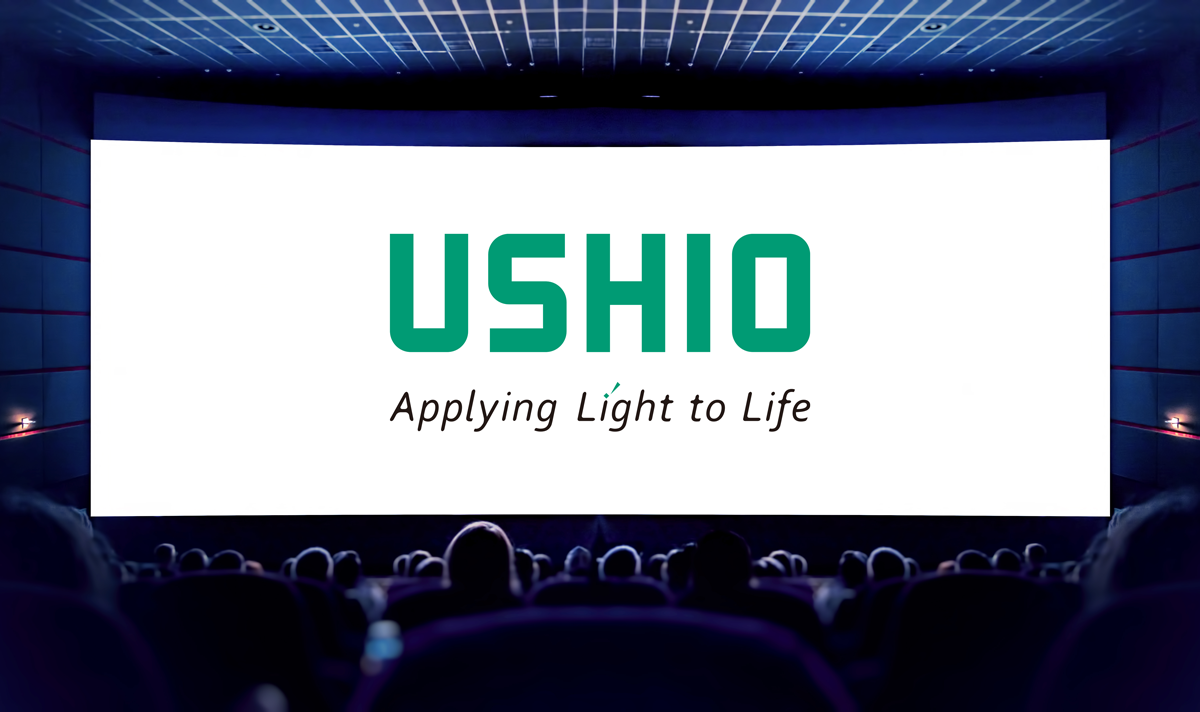
The beating heart of digital cinema projection
Digital xenon short arc lamps (DXL)
- DXL : The original line of Ushio’s digital cinema projector lamps set an industry standard. When you simply need raw power, fire up the projector, and let this lamp series do the rest.
- DXL-L : Longer lifetime, low maintenance, and minimal lamp replacements.
- DXL-LU : The new kid on the block, the LUMINITY series, offers up to 500 additional warranty hours. These lamps usher in a new era of unprecedented quality and profitability for cinema owners, by implementing a new breakthrough in cinema technology from our engineers at Ushio, Inc., in Japan. The new DXL-LU series takes the concept of long lamp lifetimes to the extreme, by simultaneously refusing to sacrifice performance to achieve it.
Ushio’s DXL-70BA lamp: Barco’s first choice for a Guinness World Record win
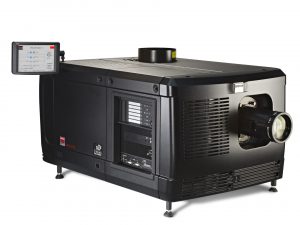
-
The record is based on the strength of the light source produced by a digital cinema projector during normal operation.
- Must only be attempted by the manufacturer or distributor of the item in question.
-
Brightness is measured in lumens, with readings taken at the centre of a 4 m² (43.06ft²) cinema screen, at a distance of 5 metres from the projector.
Engineering cinema lamps to be cost-effective and reliable
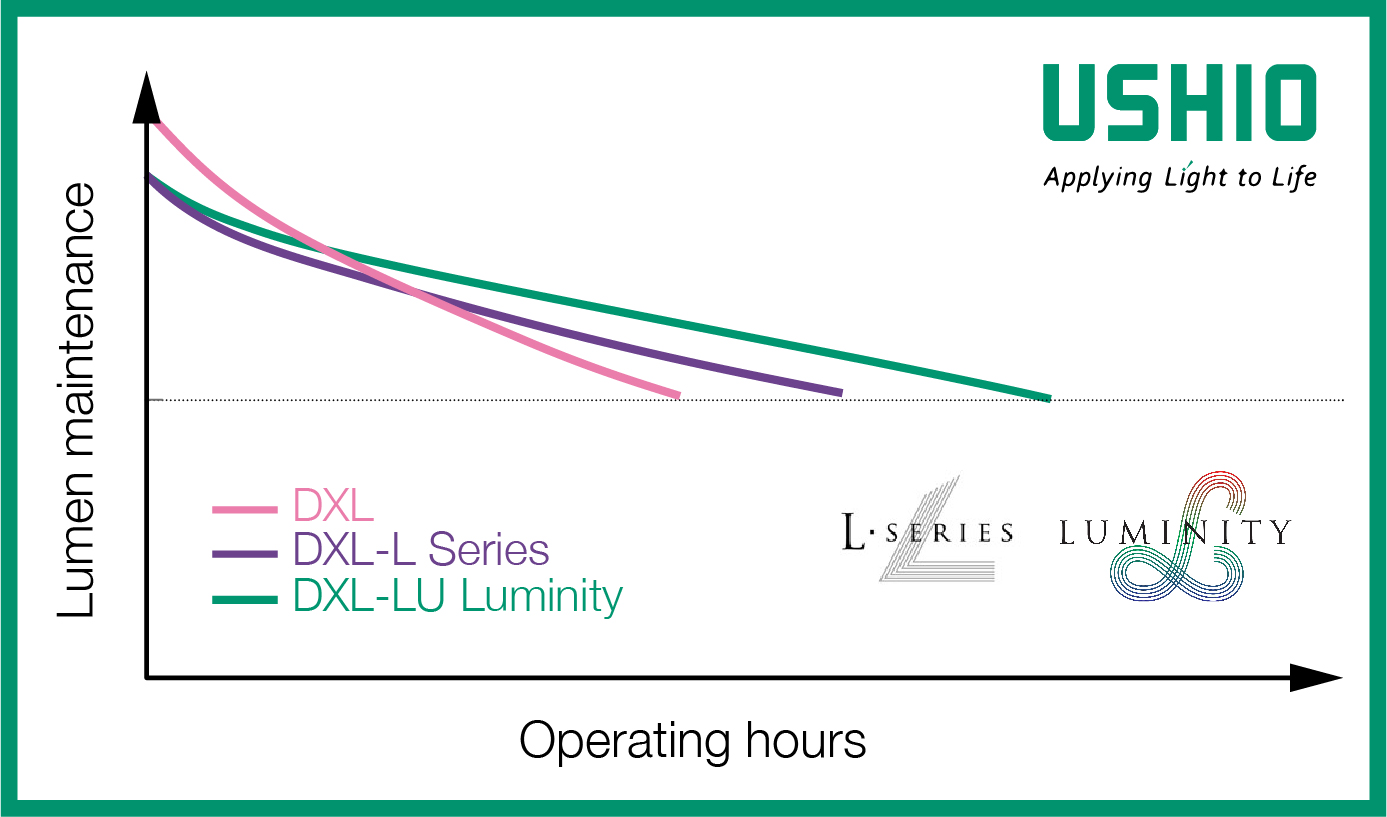
LUMINITY (DXL-LU) series continues to break new ground
How does digital cinema projection (DCP) work?
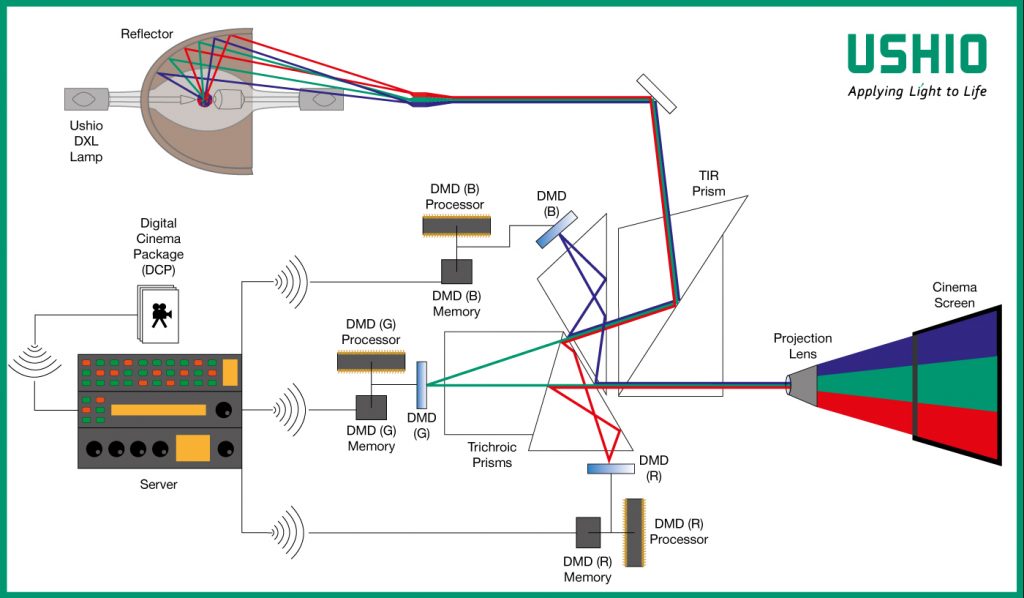
The three reflected beams now carry all of the information required to create an image on the screen. All that remains to do is recombine the red, green, and blue beams into a single light stream once again. This is achieved by directing the rays back through the trichroic prism and into the projection lens. As mentioned before, the image is tiny, so the lens must be capable of blowing up the image up to 1,200 times. Once this is achieved, the screen is illuminated in stunningly high-definition for captivated audiences to enjoy!


